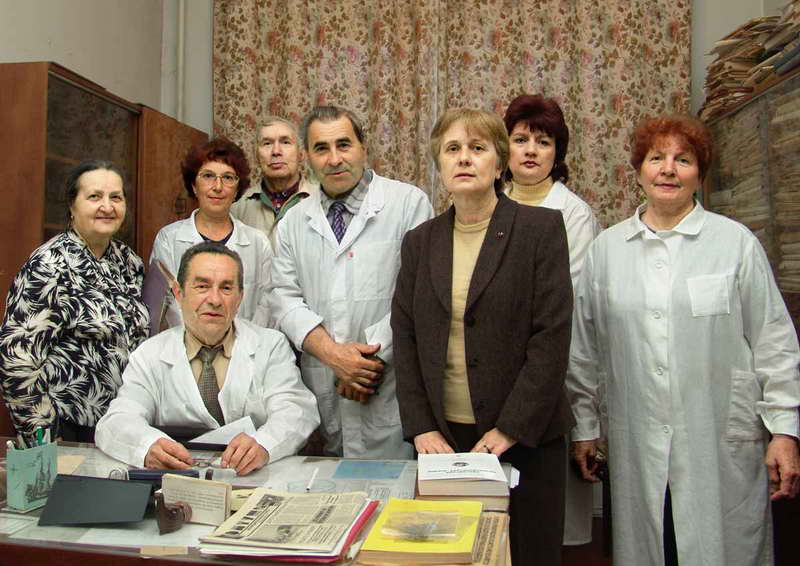The Laboratory was founded in 1936 by Prof. A. A. Volokhov who described the following phases of establishment of the reflex activity in the embryo: local reactions, primary generalization, secondary generalization, and specialization that reflects the appearance of inhibition foci.
Since 1950, the main research direction of the Laboratory, under the guidance of Prof. V. A. Troshikhin, has become study on formation of conditional reflexes at different stages of postnatal ontogenesis. In 1960–1972, under the guidance of Prof. G. A. Obrastsova, problems of learning and long-term memory were studied, and the following development stages were identified: unconditional adaptation, primary conditional adaptation, exaltation, formation of typological properties of the nervous system. Troshikhin, has become study on formation of conditional reflexes at different stages of postnatal ontogenesis. In 1960–1972, under the guidance of Prof. G. A. Obrastsova, problems of learning and long-term memory were studied, and the following development stages were identified: unconditional adaptation, primary conditional adaptation, exaltation, formation of typological properties of the nervous system.
From 1973 to 1999, under the guidance of the Honored Scientist of the Russian Federation, Prof. V. G. Kassil, interactions of emotions, motivations, and visceral functions during formation of the higher nervous activity in the process of individual development were studied. There were revealed and characterized the previously unknown critical periods of formation of different forms of behavior and visceral functions, interconnections between motivational-emotional and visceral spheres; role of the limbic system, specifically of systems of the positive and negative brain reinforcement, in organization of behavior at the earliest stages of postnatal ontogenesis; heterochronous maturation and involvement of various channels of regulation of alimentary behavior; sexual dimorphism of various behavior forms unrelated to the reproductive function (defensive, exploratory, alimentary, emotional behavior, processes of learning and memory, nociception), this dimorphism manifested as early as at the ontogenesis stages of animals prior to their sexual maturation.
Since 1999 the laboratory is headed by the Corresponding Member of the Russian Academy of Medical Sciences, the Honored Scientist of the Russian Federation, Prof. V. A. Otellin.
The main direction of investigations at present is study of formation of brain structures and functions in ontogenesis and of role of stressing actions on structural-functional characteristics of the central nervous system.
A number of new facts are obtained about characteristics of basic histogenetic processes in the brain and different sensitivity of its parts to stressing actions at certain periods of embryogenesis. By the example of hypoxia prenatal effect a gradual attenuation of its effects is shown from the earlier to the later terms of post-implantation period. An important role of serotonin in regulation of morphogenesis at the key stages the rodent brain development is established. Demonstrated experimentally is the dependence of formation and realization of various behavior forms on time of the prenatally alterating action. Stress actions at early stages of postnatal development have a peculiar effect on formation and realization of the motivational-emotional behavior at the prepubertal and pubertal periods of development. Using the modern model of study of the tonic pain (the formalin test) there are characterized for the first time the age-related peculiarities of formation and maturation of the acute and tonic nociceptive sensitivity and some of their neurochemical mechanisms.
All the studies carried out at the Laboratory are in the frame of the new scientific direction that has been formed at the Laboratory: it can be defined as histophysiology of development, ecological histophysiology. |